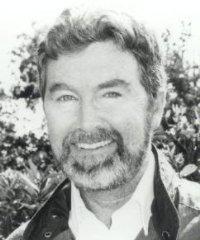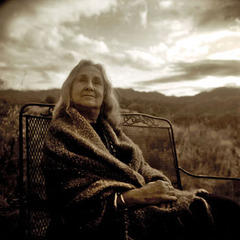Samuel Johnson Quotes - Page 21

Wit will never make a man rich, but there are places where riches will always make a wit.
Samuel Johnson, Hester Lynch Piozzi, James Boswell (1787). “The Beauties of Samuel Johnson, LL.D.: Consisting of Maxims and Observations, Moral, Critical, and Miscellaneous, to which are Now Added, Biographical Anecdotes of the Doctor, Selected from the Late Productions of Mrs. Piozzi, Mr. Boswell, ...”, p.283
Samuel Johnson, Arthur Murphy (1825). “The Works of Samuel Johnson, LL.D.: With Murphy's Essay”, p.358
When a man is tired of London, he is tired of life; for there is in London all that life can afford.
Quoted in James Boswell, The Life of Samuel Johnson (1791) (entry for 20 Sept. 1777)
Quoted in James Boswell, The Life of Samuel Johnson (1791) (entry for 31 Mar. 1772)
We may take Fancy for a companion, but must follow Reason as our guide.
James Boswell, Samuel Johnson (1824). “The Life of Samuel Johnson, LL. D., Comprehending an Account of His Studies, and Numerous Works, in Chronological Order: A Series of His Epistolary Correspondence and Conversations with Many Eminent Persons; and Various Original Pieces of His Composition, Never Before Published; the Whole Exhibiting a View of Literature and Literary Men in Great Britain, for Near Half a Century During which He Flourished”, p.258
James Boswell, Samuel Johnson, Edmond Malone (1824). “The life of Samuel Johnson, LL. D., comprehending an account of his studies, and numerous works, in chronological order: a series of his epistolary correspondence and conversations with many eminent persons; and various original pieces of his composition, never before published; the whole exhibiting a view of literature and literary men in Great Britain, for near half a century during which he flourished”, p.318
Samuel Johnson (1819). “The Beauties of Samuel Johnson: Consisting of Maxims and Observations, Moral, Critical, and Miscellaneous”, p.23
Samuel Johnson, Elizabeth Carter, Samuel Richardson, Catherine Talbot (1825). “The Rambler: A Periodical Paper, Published in 1750, 1751, 1752”
Samuel Johnson, James Boswell (1818). “The table talk of Samuel Johnson”, p.72
James Boswell, Samuel Johnson (1824). “The Life of Samuel Johnson, LL. D., Comprehending an Account of His Studies, and Numerous Works, in Chronological Order: A Series of His Epistolary Correspondence and Conversations with Many Eminent Persons; and Various Original Pieces of His Composition, Never Before Published; the Whole Exhibiting a View of Literature and Literary Men in Great Britain, for Near Half a Century During which He Flourished”, p.416
In 'European Magazine' (1795) p. 82
Most men think indistinctly, and therefore cannot speak with exactness . . .
Samuel Johnson (1827). “Dictionnary of the English Language with Numerous Corrections and with the Addition of Several Thousand Works and Also with Addition to the History of the Language and to the Grammar by H.J. Todd”, p.11
James Boswell, Samuel Johnson (1824). “The Life of Samuel Johnson, LL. D., Comprehending an Account of His Studies, and Numerous Works, in Chronological Order: A Series of His Epistolary Correspondence and Conversations with Many Eminent Persons; and Various Original Pieces of His Composition, Never Before Published; the Whole Exhibiting a View of Literature and Literary Men in Great Britain, for Near Half a Century During which He Flourished”, p.134
James Boswell, Samuel Johnson (1859). “The Life of Samuel Johnson, LL. D.: Including a Journal of a Tour to the Hebrides”, p.319
A man who has not been in Italy, is always conscious of an inferiority.
In James Boswell 'The Life of Samuel Johnson' (1791) vol. 3, p. 36 (11 April 1776)
Samuel Johnson (1761). “The Rambler: In Four Volumes”, p.239
Samuel Johnson (1793). “The rambler”, p.263
Melancholy, indeed, should be diverted by every means but drinking.
James Boswell, Samuel Johnson, Edmond Malone (1824). “The life of Samuel Johnson, LL. D., comprehending an account of his studies, and numerous works, in chronological order: a series of his epistolary correspondence and conversations with many eminent persons; and various original pieces of his composition, never before published; the whole exhibiting a view of literature and literary men in Great Britain, for near half a century during which he flourished”, p.5
Samuel Johnson, Elizabeth Carter, Samuel Richardson, Catherine Talbot (1825). “The Rambler: A Periodical Paper, Published in 1750, 1751, 1752”
Samuel Johnson (1836). “Johnsoniana; or supplement to Boswell; being Anecdotes and sayings of Dr. Johnson, etc”, p.104
Dr. Samuel Johnson (2013). “Delphi Complete Works of Samuel Johnson (Illustrated)”, p.8598, Delphi Classics
James Boswell, Samuel Johnson (1799). “Boswell's Life of Johnson: Including Boswell's Journal of a Tour of the Hebrides, and Johnson's Diary of A Journey Into North Wales”, p.426
James Boswell, Samuel Johnson (1786). “Boswell's Life of Johnson: Including Boswell's Journal of a Tour of the Hebrides, and Johnson's Diary of A Journey Into North Wales”, p.257






